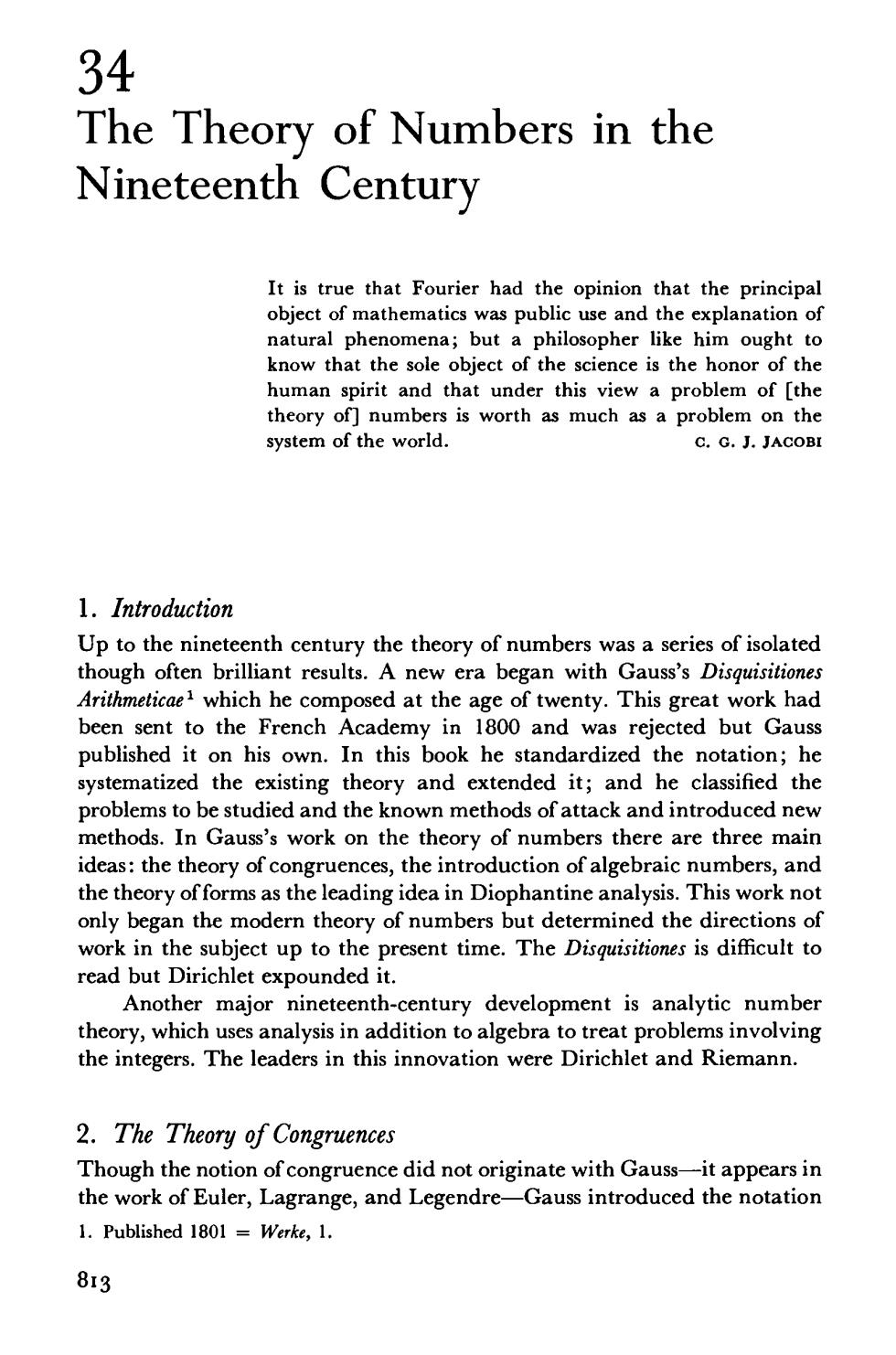正在加载图片...

34 The Theory of Numbers in the Nineteenth Century It is true that Fourier had the opinion that the principal object of mathematics was public use and the explanation of natural phen mena but a philosopher like him ought to know that the sole object of the science is the honor of the human spirit and that under this view a problem of [the theory of]numbers is worth as much as a problem on the system of the world. C.G.J.JACOBI 1.Introduction Up to the nineteenth century the theory of numbers was a series of isolated though often brilliant results.A new era began with Gauss's Disquisitiones Arithmeticae1 which he composed at the age of twenty.This great work had been sent to the French Academy in 1800 and was rejected but Gauss published it on his own.In this book he standardized the notation;he systematized the existing theory and extended it;and he classified the problems to be studied and the known methods of attack and introduced new methods.In Gauss's work on the theory of numbers there are three main ideas:the theory of congruences,the introduction of algebraic numbers,and the theory offorms as the leading idea in Diophantine analysis.This work not only began the modern theory of numbers but determined the directions of work in the subject up to the present time.The Disquisitiones is difficult to read but Dirichlet expounded it. Another major nineteenth-century development is analytic number theory,which uses analysis in addition to algebra to treat problems involving the integers.The leaders in this innovation were Dirichlet and Riemann. 2.The Theory of Congruences Though the notion of congruence did not originate with Gauss-it appears in the work of Euler,Lagrange,and Legendre-Gauss introduced the notation 1.Published 1801 =Werke,1. 813